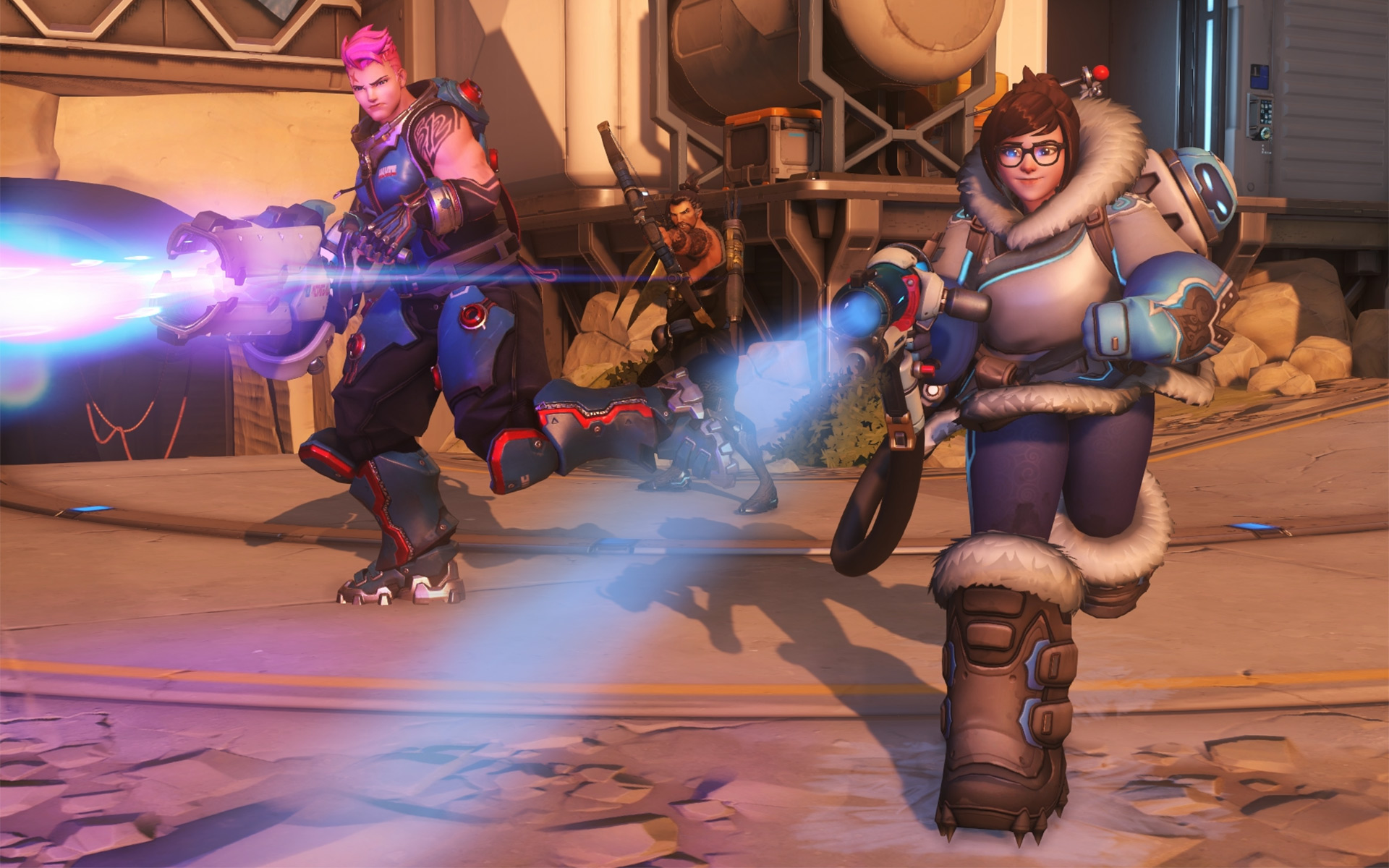Around 100 people are now working on Overwatch
Blizzard's "core" Overwatch team is about the same size as the entirety of Valve.

Have you ever wondered how many people are actually working on Overwatch right now? Battle.net user Lackofname did, and so they asked—and game director Jeff Kaplan answered. Boy, did he answer.
“The Overwatch Team (internally at Blizzard we are called 'Team 4') is comprised of about 100 developers at this point. The disciplines who comprise the team are Audio, Art, Engineering, Production, and Design,” Kaplan wrote. “We also have two full-time Business Operations people and an esports director who are part of the team.”
The team was actually quite a bit smaller during development, when it fluctuated between roughly 40 and 75 members. But when Overwatch went live the audio team, which had previously been a “shared, central resource” was brought onto the game full time, as was the automation group, which Kaplan credited for the game's smooth launch.
But that's not all! There are also the “embedded” QA and Community teams, and the Blizzard animation team responsible for the animated shorts, which is actually part of the larger Story and Franchise Development group that creates things like the Overwatch comics and gameplay videogames. The licensing group comes up with all the swag available in the Blizzard store, and even the legal team gets credit for ensuring that things like the Hollywood sign in the Overwatch map of the same name is fair and legal to use.
Then there's the anti-hack/anti-cheat group, an esports group, an IT/Networking/Live Ops group that keeps the servers up, a PR team that deals with people like me, a “BRILLIANT” (all-caps his) business analysis team, the customer support team, the human resources team... It's a long list that goes all the way up to Blizzard's top executives. Kaplan manages to give just about everyone at Blizzard some slice of credit for making Overwatch happen.
“But at it's core, it's about 100 gals and guys trying to make cool stuff that makes you guys happy,” he concluded.
It's a long way around to get back to where he started, but there you have it: 100 people on Overwatch, give or take. Which makes for some interesting comparisons: The entire Fallout 4 development team wasn't much more than 100 people, and Valve is rumored to be just a few hundred developers split between Steam, VR, Dota 2, and other projects. Tripwire Interactive is making Killing Floor 2 with roughly 50 people (although that number is a couple of years old), and according to LinkedIn, the entirety of Croteam, which is currently working on both The Talos Principle 2 and Serious Sam 4, is less than 50 people. Even the massive, sweeping single-player RPG The Witcher 3: Wild Hunt had “only” about 240 in-house staffers working on it, although like Blizzard, there was a large number of external people working on it as well.
The biggest gaming news, reviews and hardware deals
Keep up to date with the most important stories and the best deals, as picked by the PC Gamer team.
So it's a big team, especially for a game that's been out for more than three months, but not surprisingly so. Kaplan has spoken numerous times about Blizzard's long-term commitment to Overwatch, which has been a major success by virtually every measure, including as a nascent esports title, which adds an entirely different layer of demand for ongoing tuning. And it's not as though Blizzard doesn't have the resources to throw at it, right?
Kaplan also took some time to explain how changes in Overwatch go from “being mentioned to being implemented,” which is interesting in its own right—and, believe it or not, shorter.

Andy has been gaming on PCs from the very beginning, starting as a youngster with text adventures and primitive action games on a cassette-based TRS80. From there he graduated to the glory days of Sierra Online adventures and Microprose sims, ran a local BBS, learned how to build PCs, and developed a longstanding love of RPGs, immersive sims, and shooters. He began writing videogame news in 2007 for The Escapist and somehow managed to avoid getting fired until 2014, when he joined the storied ranks of PC Gamer. He covers all aspects of the industry, from new game announcements and patch notes to legal disputes, Twitch beefs, esports, and Henry Cavill. Lots of Henry Cavill.

